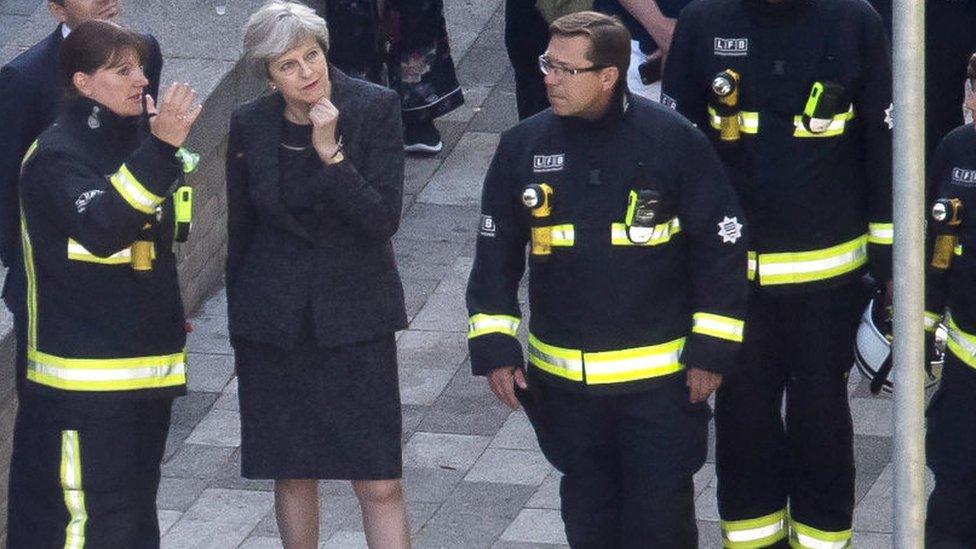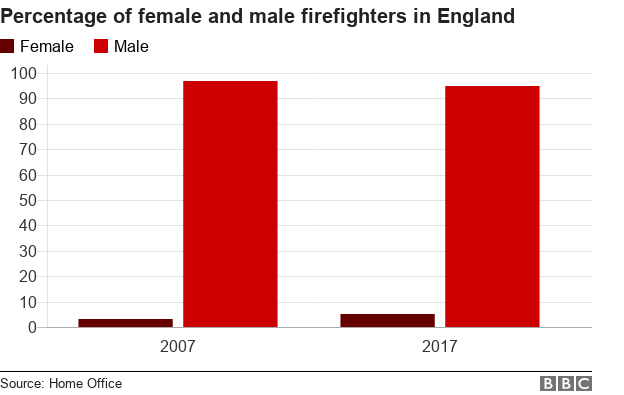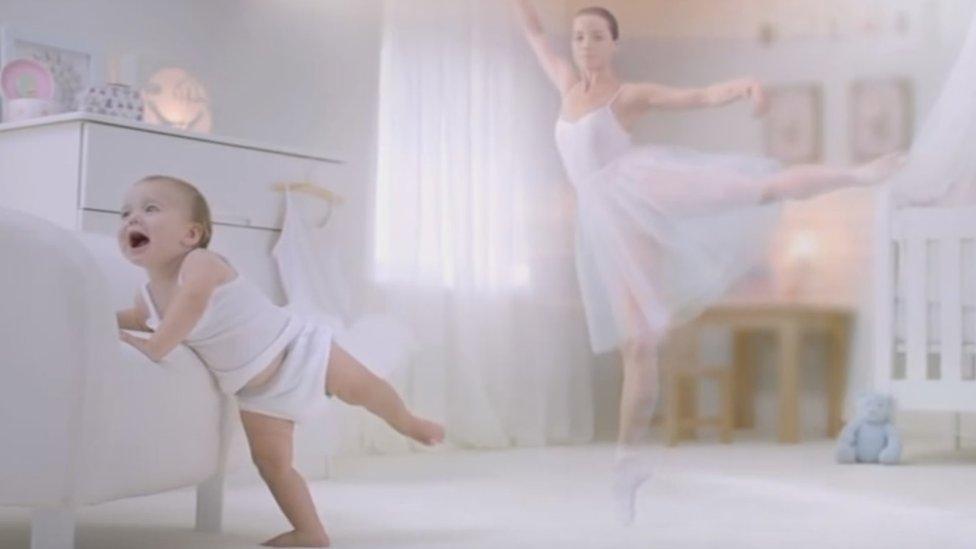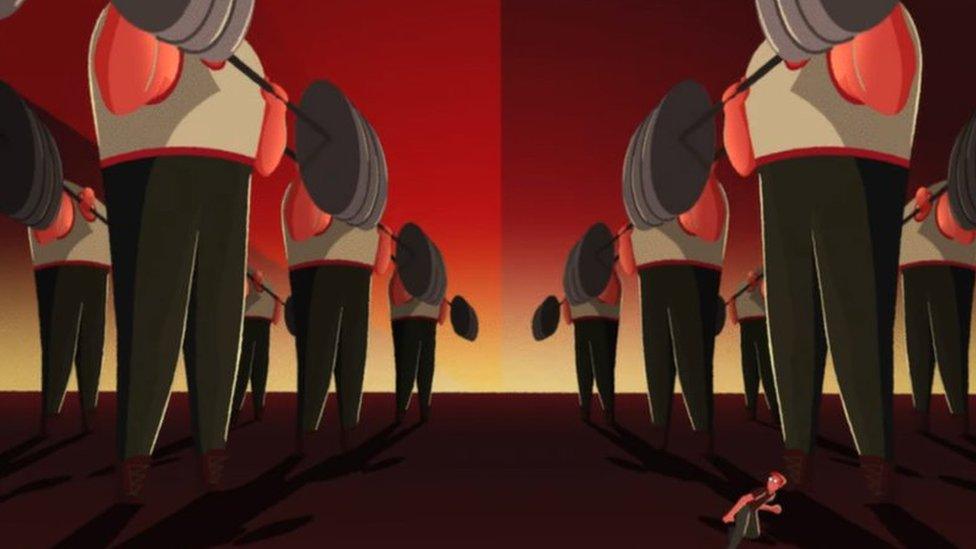Love Island cliche 'puts off female firefighters', says brigade chief
- Published

Dany Cotton (left) with Theresa May on her visit to Grenfell Tower
The head of the London Fire Brigade has criticised Love Island for reinforcing the cliche of firefighters as muscle-bound male sex objects.
Commissioner Dany Cotton said "offensive" stereotypes discouraged young women from joining the service.
She criticised the ITV2 show for "rolling out every offensive cliche possible with their so-called 'fireman challenge'".
The brigade also criticised an advert for Harpic toilet cleaner.
Ms Cotton - the first woman to hold the LFB's most senior position - said Love Island's fireman challenge "reinforces the misconception that all firefighters are muscle-bound men".
"No wonder so many young women are put off by that," she added.
The fireman challenge required the male Love Island participants to strip to their underwear and pretend to save a woman from danger.
Just 300 of the LFB's 5,000 operational firefighters - 6% - are women.
Research by the brigade also cited a Harpic toilet cleaner ad in which a woman swoons over a brawny male firefighter.
Ms Cotton argued that putting an end to "lazy cliches" would change the public's attitude and encourage more woman to join the fire service.

How many women firefighters are there?
BBC Reality Check
Last year, 5.2% of firefighters in England were women. There were 1,838 female firefighters, compared to 33,782 male firefighters.
The proportion of female fighters is slowly increasing. In 2007, 3.1% (1,384) of firefighters were women.

By comparison, about a third of police officers in England and Wales are women - 10 times the proportion that are firefighters.
Despite few women being front line firefighters, the majority of fire control staff (76%) and fire support staff (52.5%) are female.

Ms Cotton said the Army and police had been "enriched" by more female representation and praised the way TV characters such as Jane Tennison from Prime Suspect had changed people's perception of women in the police force.
"It's time the fire and rescue service caught up," she said.
Liz George, a watch manager for London Fire Brigade, said she felt "infuriated" when she watched Love Island's "fireman challenge" live on TV.
"Even saying 'fireman', emphasising its just a man that could do that role, is quite frustrating when I'm out doing that job every day," she said.

Love Island has been attacked for rolling out "every offensive cliche possible" about firefighters
Earlier this year, the Advertising Standards Agency (ASA) ran a consultation on a proposal that adverts "must not include gender stereotypes that are likely to cause harm, or serious or widespread offence".
An ASA spokeswoman said: "We've published evidence that shows gender stereotypes have the potential to cause harm because they limit how people's potential is considered by themselves and others - with costs to the individual, economy and society.
"We've already been taking action to ban ads which reinforce harmful stereotypes and we'll publish the results of our consultation around new rules for advertisers later this year."
- Published16 July 2018

- Published18 July 2017

- Published10 January 2018
